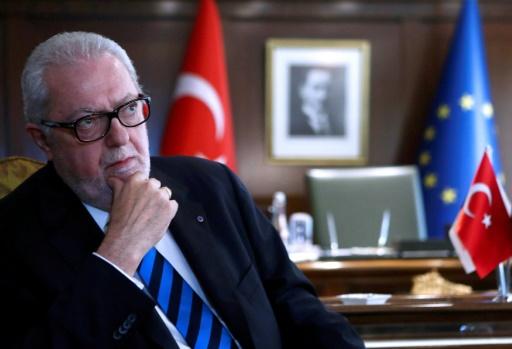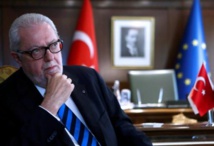The 65-year-old Spanish senator has now been forbidden to travel or speak on behalf of the Council's assembly after its members "resolved that it has no confidence" in him, said a statement.
The decision came after Agramunt refused to resign. However, the assembly does not have the power to dismiss him.
The Council of Europe, comprised of more than 300 members of national parliaments across the continent, meets four times a year for one week in Strasbourg to discuss the defence of human rights, promotion of the rule of law and efforts to fight corruption.
"Standards and principles of the parliamentary assembly are more important than any individual member, and the integrity of our assembly must be upheld," said Britain's Sir Roger Gale, its senior vice-president, after chairing the meeting that censured Agramunt.
The motion of no confidence follows the Spanish politician's visit last month to the Syrian capital, arranged by Russia's government, in which he met and was pictured with Assad.
"It is sickening to see that the president of this assembly has been photographed with someone who has gassed his own population," said Ukraine's Oleksil Goncharenko, an assembly member, alluding to allegations of chemical weapons attacks on civilians attributed to Assad's regime.
Agramunt, who recently apologised for being in Damascus, did not attend Friday's hearing and was not immediately available for comment.
He was also accused of inaction over a corruption scandal dating back to 2013 dubbed "Caviargate", in which assembly members are accused of being "bought" by Azerbaijan's government.
They are said to have received gifts including carpets, caviar and luxury hotel accommodation in Baku in exchange for not approving a report criticising the situation of political prisoners in Azerbaijan.
An Italian lawmaker, Luca Volonte, no longer a member of the assembly, is suspected of having accepted nearly 2.4 million euros ($2.61-million) from Baku, resulting in legal proceedings in Italy.
The Council's assembly this week approved the nomination of three independent experts to investigate the Caviargate scandal.
Agramunt, who has visited Baku on numerous occasions as an election observer, was frequently said to have blocked such a probe.
-------------------------------------------------------------------------------------------------------------------
The decision came after Agramunt refused to resign. However, the assembly does not have the power to dismiss him.
The Council of Europe, comprised of more than 300 members of national parliaments across the continent, meets four times a year for one week in Strasbourg to discuss the defence of human rights, promotion of the rule of law and efforts to fight corruption.
"Standards and principles of the parliamentary assembly are more important than any individual member, and the integrity of our assembly must be upheld," said Britain's Sir Roger Gale, its senior vice-president, after chairing the meeting that censured Agramunt.
The motion of no confidence follows the Spanish politician's visit last month to the Syrian capital, arranged by Russia's government, in which he met and was pictured with Assad.
"It is sickening to see that the president of this assembly has been photographed with someone who has gassed his own population," said Ukraine's Oleksil Goncharenko, an assembly member, alluding to allegations of chemical weapons attacks on civilians attributed to Assad's regime.
Agramunt, who recently apologised for being in Damascus, did not attend Friday's hearing and was not immediately available for comment.
He was also accused of inaction over a corruption scandal dating back to 2013 dubbed "Caviargate", in which assembly members are accused of being "bought" by Azerbaijan's government.
They are said to have received gifts including carpets, caviar and luxury hotel accommodation in Baku in exchange for not approving a report criticising the situation of political prisoners in Azerbaijan.
An Italian lawmaker, Luca Volonte, no longer a member of the assembly, is suspected of having accepted nearly 2.4 million euros ($2.61-million) from Baku, resulting in legal proceedings in Italy.
The Council's assembly this week approved the nomination of three independent experts to investigate the Caviargate scandal.
Agramunt, who has visited Baku on numerous occasions as an election observer, was frequently said to have blocked such a probe.
-------------------------------------------------------------------------------------------------------------------









 Home
Home Politics
Politics











